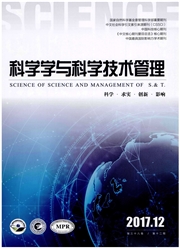

 中文摘要:
中文摘要:
针对我国在战略性新兴产业发展过程中“过度趋同”的现象,通过回顾其理论产生的两个来源——发展主义和创新系统理论,认为,制度和技术的决定论思想只会默许趋同的发生。而选择之所以会成功,依赖于制度和技术所提供的愿景、系统各要素间互动所形成的内聚力,以及人工物和物质材料等所构成的约束等必要条件的达成。我国在满足可选择性条件方面虽有诸多先天劣势,但沿袭政策试验的良好传统让行政指导重新模糊化,从而释放出地方政府等行动者创新的潜能并恢复必要的解释的灵活性,不失为一个突破的起点。
 英文摘要:
英文摘要:
To solve the problem of 'over convergence' on the selection of strategic emerging industries in China, this paper traced the theoretical origins of this policy. And found out that, both Developmentalism and System of Innovation theory are kinds of institutional or technological determinism, which finally lead or at least acquiescence this convergence. The selection could only be successful under the circumstance of the vision constructed by institution or technology, the cohesion between the elements' interaction in system, as well as the constraint of artifact and material conditions. Although it is very difficult for China to meet all these requirements, still the tradition of policy experimentation could be recovered as a good start-point to release the potential energy of local government and other actors, where the de-clarity of administrative guidance is very helpful and important to have the necessary interpretive flexibility.
 同期刊论文项目
同期刊论文项目
 同项目期刊论文
同项目期刊论文
 期刊信息
期刊信息
